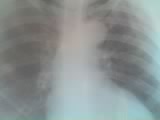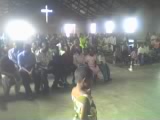Antimicrobial Resistance (AMR): a threat for the humanity
On November 25, 2017, a scientific meeting was held as part of ASM Young Ambassador activities for the year 2017 in Goma city/Democratic Republic of Congo. The main topic of the event was: Antimicrobial Resistance: a threat for the humanity.
AMR has become a real threat for public health and the entire society worldwide. Although, previous studies have shown that misuse and overuse of antibiotics is the main cause, the role of health professionals has been highlighted in over prescription of antibiotics unnecessarily. This increases the use of antibiotic without any evidence for sensitivity and presence of infection. In addition, pharmacists play a crucial negative role in delivering antibiotics without prescription. Hence, this leads to increased rate of resistance to most common used antibiotics.
Due to the above global health menace, it was important to hold this annual meeting targeting health professionals (doctors, lab technicians and nurses) for a scientific reflection which allow them to understand the role they play negatively during their daily work. Therefore, this may contribute in changing behaviour and think twice before prescribing antibiotics.
The specific objective was to gather 15 health professionals for the meeting. The second objective was to get commitment from 80% of them to change their daily habit. In addition, 60% of them should commit to become members of ASM.
During the event, 19 health professionals have attended from 9 health care institutions. Hence, this objective has been attained by 126.6%. This show at which extend the topic was interesting for health professionals who were invited for the event.
Among the attendees, 9 were medical doctors (47.3%), 8 were registered nurses who are involved in prescription (42.1%), 1 was a registered lab technician (5.3%), and 1 was medical school student (5.3%). The objectives of the ASM YA and the engagement with ASM were well explained to the participants to let them be engaged with this international scientific organization. Therefore, 17 of them (89.5%) have made commitment to join the ASM and the membership forms were filled. This leads to an achievement of this objective by 149.2%.
During the discussion, all attendees (100%) have committed to change their usual habit in prescribing antibiotics. Even though, the needed materials and equipment for infection diagnostic and antibiotic sensitivity, participants have agreed that it is important to think sufficiently before releasing a prescription and advocating for equipping hospitals and health centres to diagnose an infection before treatment. Hence, this objective was attained in 125%.
At the end of the session, 3 working groups were constituted to reflect on the following topics:
1. How veterinary service can help to avoid AMR?
2. How to avoid abusive prescription for antibiotics?
3. How to avoid the consumption of non-prescribed antibiotics in the community?
After the group work, a bunch of recommendations have been formulated among them, we can quote: 1. Awareness program for veterinary doctors and help them to create veterinary clinic for animal health and explain them to avoid using antibiotic in animal unnecessarily.
2. Make regulations for exportation of animal products.
3. Awareness program for the entire community explaining the problem to the population. This can reduce unnecessary consumption of antibiotics without prescription.
4. Conception of prescription guidelines and strict respect of protocols (when possible) and avoid non-justifiable antibiotic combinations.
5. The government should take its responsibility and pay all health care personals and equip all hospitals (public and private) with materials to diagnose infections and sensitivity.
As the topic is more interesting and new for all health professionals, it was decided to take as the topic for the year 2018. This will allow professionals to get deep understanding of how behaviour and contribute to the global effort to solve this health crisis. A certain number of scientific visits will be held next years in different health care facilities to involve a sufficient number of health professionals.
Done in Goma, December 5th, 2017
Mateus Kambale Sahani, MD, MSc
ASM Young Ambassador for DRC, Hope Medical Center (HMC).

























































































































